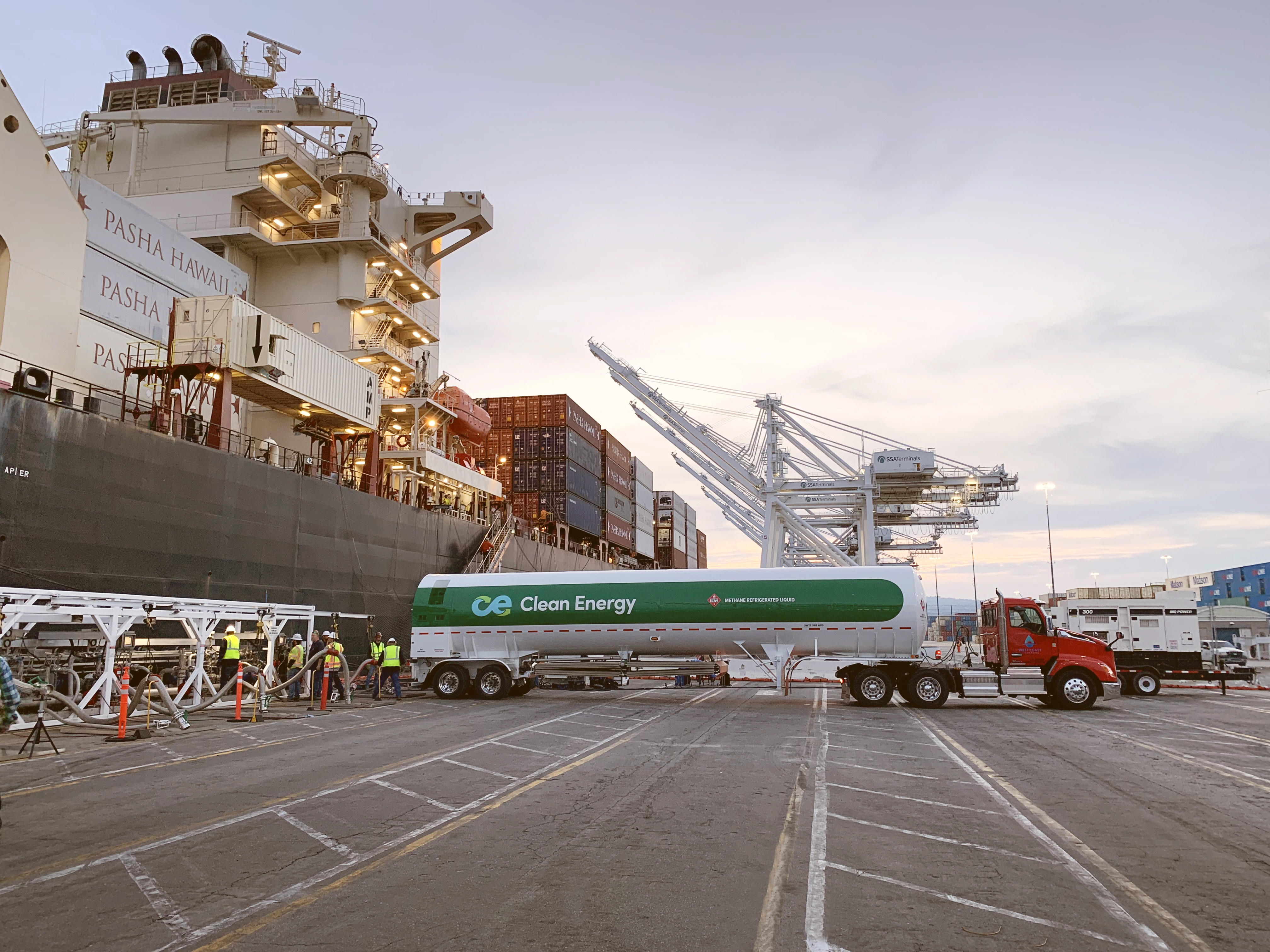Clean Energy Fuels Corp. (NASDAQ: CLNE), the largest provider of the cleanest fuel for the transportation market, announced that construction of a third production train at its liquefied natural gas (LNG) plant in Boron, California, has been completed, increasing the plant’s volume capacity by 50 percent. Already the largest plant of its kind in the Southwest U.S., the Boron plant now has the capacity to produce up to 270,000 gallons of cleaner-burning LNG every day.
The addition of the third production train will allow the supply to meet the growing demand for bulk LNG by customers looking to decarbonize everything from city buses to large container ships.

“We are proud to continue our partnership with Clean Energy to efficiently bunker and fuel our three LNG-powered container ships in the Pasha Hawaii fleet, which are among the most technologically advanced and environmentally friendly vessels to serve Hawaii and California.”
An important Clean Energy customer, Pasha Hawaii, is now operating three LNG-powered container ships out of the Ports of Long Beach, Oakland and Honolulu. The volume of fuel that the MV George II, MV George III and MV Janet Marie has grown from 526,486 gallons of LNG for the month of August 2022 when Pasha Hawaii’s first LNG-powered ship was commissioned, to 2,115,726 gallons in April 2024.
Not only can fueling with LNG significantly and immediately improve air quality around the ports, which often have some of the worst air pollution in the country, but by operating on LNG, all three Pasha Hawaii ships surpass the International Maritime Organizations (IMO) 2030 standards for ocean vessels with zero sulfur emissions. Pasha’s LNG ships also obtain a 90 percent reduction in nitrogen oxide and 25 percent reduction in carbon dioxide compared to ships running on traditional fuels.
“Pasha Hawaii’s leadership in sustainable shipping has grown with the commissioning of their third LNG-powered ship. By growing their LNG-fleet, they are reducing pollution and carbon emissions around the ports and showing that LNG can work as effectively as their fuel oil counterpart. The addition of more LNG production at our Boron facility will give us the capacity to allow other customers the ability to decarbonize their operations,” said Greg Roche, vice president at Clean Energy.
“We are dedicated to employing today’s most innovative resources and technologies to ensure the cleanest operations possible in the communities we serve,” said George Pasha, IV, President and CEO, The Pasha Group. “We are proud to continue our partnership with Clean Energy to efficiently bunker and fuel our three LNG-powered container ships in the Pasha Hawaii fleet, which are among the most technologically advanced and environmentally friendly vessels to serve Hawaii and California.”